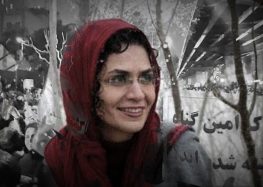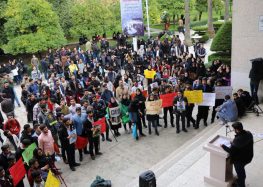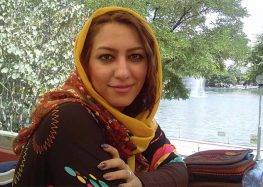Massoud Bastani: 500 Days in Prison Without a Single Hour of Furlough
Five hundred days have passed since journalist Massoud Bastani was arrested and imprisoned. His wife, Mahsa Amrabadi, told the International Campaign for Human Rights in Iran that she hopes her husband will be allowed furlough and that his situation will improve if a UN Human Rights Commission envoy is dispatched to Iran.
“Five hundred days have gone by since Massoud’s arrest, and he has not even had one hour of leave. Massoud’s toothaches continue, and he had to accept prison treatment, but he needs gum surgery. Treatment he did receive was minor and administered to stop the pain. We wait to receive approval for his leave for gum surgery outside the prison. We have not been able to figure out why some prisoners are not granted leave. Does this mean that Massoud is not eligible for even one day of leave? We continue to wait for his leave, as it is every prisoner’s right to have furlough during his sentence,” Amrabadi said.
“I hope the [human rights] envoy travels to Iran as soon as possible. But I hope he does not stop with meeting just a few government officials. I hope he tries to meet the families of political prisoners, as we are live witnesses of violations of human rights in Iran. We are witnesses to the cruelty unleashed on us and our kin for the past almost two years. Who better than us can describe the situation with human rights in Iran? I hope that when he comes to Iran, he would see us too; maybe something would happen,” said Amrabadi, who herself has been sentenced to one year in prison on the charge of “propagating against the regime.”
Mahsa Amrabadi is allowed to visit her husband in Rajaee Shahr Prison in Karaj once every two weeks. “On our visitation days, we see the families of other political prisoners, too. Generally, the visiting hours of political prisoners are different from other prisoners, so they bring the political prisoners out for their visits as a group. This is a benefit for us, as we can see them all together. Though all of them are in poor physical condition, and prison life has exposed them to psychological pressure, they have good spirits. They believe that the price they are paying will not be for naught. They even encourage us and follow up on news from outside the prison,” said Amrabadi about the conditions of other political prisoners in prison with her husband.
Amrabadi, a journalist herself, has been convicted of “propagating against the regime through writing in the press.” “My lawyer has appealed, but my appeals court has not been assigned yet. In fact, I am not hopeful about an appeal. Experience has shown us that these courts mostly act to uphold the decisions of lower courts,” Amrabadi told the Campaign about the status of her own case.
“It seems there are other organizations behind my case, as my interviews after my release and photographs of individuals who had come to see me after my release were in my file. I don’t think the Judge, Mr. Moghisseh, went on the Internet himself in order to find my photographs and interviews, printing his findings. These were in my file, seemingly to increase the charges against me, and to sway the judge [against me]. At any rate, I am guessing that my verdict would be upheld by the appeals court,” Amrabadi added.
“It is a given that nobody wants to go to prison, and I am not prepared for it at all, either. But if we are to pay a price, I am no better than people like Shabnam Madadzadeh, Bahareh Hedayat, and Mahdieh Golroo [who are already in prison],” she said.
Journalist Massoud Bastani was arrested on 5 July 2009 in the aftermath of the presidential election. His arrest took place when he went to the Revolutionary Courts to learn about the reasons his wife had been arrested. The reason for his arrest was cited as his “activities on the Jomhouriyat website.” Bastani was eventually sentenced to six years in prison. He has been serving his sentence at Karaj’s Rajaee Shahr Prison. Journalist Mahsa Amrabadi was recently sentenced to one year in prison in her initial court.






